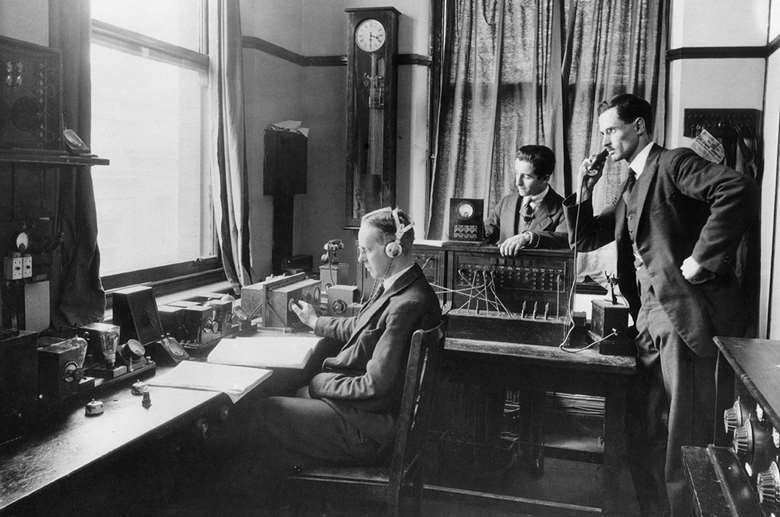Let’s raise a 100th-birthday toast to the BBC
Martin Cullingford, Gramophone Editor
Friday, November 4, 2022
Across a century, broadcasting has changed music – and society

Next year marks the 150th anniversary of Rachmaninov’s birth, and I look forward to much celebration of his music. But just before we get there, I’ll first refer to something he got rather wrong. In April 1931’s edition of Gramophone Rachmaninov wrote: ‘Not long ago I was asked to express my opinion as to the musical value of broadcasting. I replied that, to my mind, radio has a bad influence on art: that it destroys all the soul and true significance of music.’ To be fair to him, Rachmaninov was primarily writing in defence of recording, praising its permanence over the ephemeral nature of radio. He was also writing in an era of early technology, and couldn’t perhaps have foreseen the extraordinary advances in broadcast sound quality that the coming century was to witness.
Perhaps he would have felt differently if he was around to celebrate last month’s centenary of the BBC. Launched in October 1922, BBC radio – and later television – went on to become one of the world’s most significant supporters of classical music. Few corners of the corporation so well embody the founding vision of Lord Reith to inform, educate and entertain as Radio 3. It supports ensembles across the UK, stages the Proms, contributes to contemporary music through an unrivalled programme of commissioning, and nurtures young musicians through the New Generation Artists scheme. Its archives are an invaluable chronicler of an age: scan your albums and I wager a fair number owe their origins to a BBC broadcast.
I sometimes feel though that it’s in the day-to-day that its greatest value lies. The serendipity that comes from tuning in and being presented with both the known and new, discussed with lightly worn erudition. Or being united in the strangely communal experience of listening to Choral Evensong or a lunchtime concert. The most extraordinary example of this paradoxical power of radio was the first pandemic live broadcast of 2020; when Stephen Hough took to Wigmore Hall’s stage it was the closest I’ll (thankfully) ever get to understanding the communal connection the wartime wireless must have brought.
Throughout the world, cultural broadcasting across hundreds of stations and channels – including several in the UK alone – is a crucial part of how classical music is disseminated and enjoyed today, indeed modern musical life is unimaginable without it. I think it’s correct to add alongside these many innovative online offerings from global ensembles and organisations, plus podcasts and carefully curated playlists from streaming services – but the ancestors of them all can be found in those early radio broadcasts. Today’s more disparate digital world with its fragmented audiences brings both opportunities and challenges for organisations like the BBC.
But whatever future form broadcasting takes, let us today toast the BBC’s century-long contribution to society, and in particular its unwavering commitment to classical music; whoever succeeds out-going Radio 3 Controller Alan Davey will find themselves custodian of something very precious. ‘Radio is a very great invention, but not, I think, for art’, continued Rachmaninov. A brilliant composer and pianist he may have been, but on that he was mistaken.








